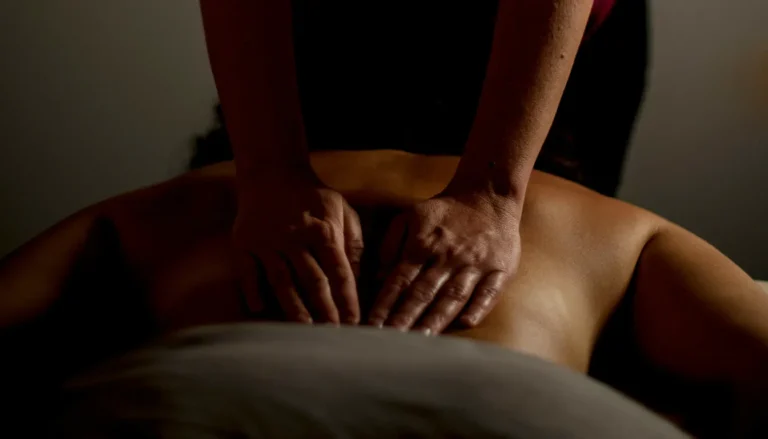In recent years, there has been a growing interest in complementary therapies across the United Kingdom. With one in four Britons experiencing challenges related to their well-being, many are turning to alternative treatments to support their overall health. Among these, massage therapy has gained significant attention for its potential to alleviate stress and promote relaxation.
Leading institutions like the Mayo Clinic have integrated massage into their care programmes for over two decades, highlighting its mainstream acceptance. This raises important questions about its role in managing conditions such as anxiety and depression. Could this hands-on approach offer meaningful benefits for those seeking relief?
In the UK, specialised programmes, like those offered by Physio.co.uk in Greater Manchester, are tailored to address specific needs. These initiatives reflect a broader shift towards holistic care, blending traditional and modern practices. As more people explore these options, understanding the connection between physical touch and emotional well-being becomes increasingly relevant.
Key Takeaways
- Growing interest in complementary therapies for well-being in the UK.
- One in four Britons faces challenges related to their mental health.
- Mayo Clinic has integrated massage into care programmes for over 20 years.
- Specialised massage programmes available in Greater Manchester.
- Potential benefits for stress, anxiety, and depression management.
Introduction to Massage and Mental Health
Complementary therapies are becoming a popular choice for many in the UK. With 8.2 million adults reporting symptoms of anxiety or depression, according to NHS data, the need for effective treatment options is clear. Many are turning to therapies like massage to address both physical tension and psychological stressors.
A Kronenberg study found that 54% of women with depression use complementary therapies, including massage, to manage their symptoms. This aligns with the 2022 National Health Interview Survey, which showed that 43.78% of individuals use complementary and alternative medicine (CAM) for neuropsychiatric symptoms.
In the UK, services like those offered by Physio.co.uk provide tailored protocols for stress-triggered events. These programmes are designed to support individuals before and after stressful situations, offering a holistic approach to well-being.
As more people explore these options, the connection between physical touch and emotional balance becomes increasingly relevant. Therapies like massage are not just about relaxation; they play a dual role in addressing both the body and mind.
What is Massage Therapy?
Massage therapy has become a widely recognised approach to holistic care in the UK. It involves the structured manipulation of soft tissues, including muscles, tendons, and ligaments. This hands-on treatment aims to alleviate tension, improve circulation, and promote relaxation.
There are various techniques used in massage therapy, each tailored to specific needs. Swedish massage focuses on gentle strokes to relax the body. Deep tissue targets deeper muscle layers to relieve chronic pain. Sports massage, on the other hand, is designed to enhance athletic performance and recovery.
Massage therapy addresses both neurotic symptoms, such as anxiety and depression, and the physical manifestations of psychotic conditions. It provides a dual benefit by easing physical discomfort while fostering emotional balance.
In the UK, practitioners like those at Physio.co.uk must hold a Level 5 Soft Tissue Therapy qualification. This ensures they meet high standards of care and expertise. According to a 2023 YouGov survey, 59% of UK adults have tried massage therapy, highlighting its growing popularity.
Whether for relaxation or targeted relief, massage therapy offers a versatile approach to well-being. Its ability to address both body and mind makes it a valuable tool in modern treatment practices.
The Science Behind Massage and Mental Health
Recent studies highlight the profound impact of touch-based therapies on emotional and physical well-being. These therapies not only address physical tension but also foster a sense of calm and clarity. Let’s delve into the physiological and psychological effects that make them so effective.
Physiological Effects of Massage
Research shows that touch therapies can lead to significant changes in the body. A 2023 study by Loughborough University found that participants solved problems 22% faster after a session. This suggests improved cognitive function and mental clarity.
Slow-stroke techniques, as highlighted by Wu et al. (2021), increase alpha waves by 38%. These brainwaves are associated with relaxation and a calm state of mind. Additionally, Manchester Metropolitan University discovered that dopamine levels rise comparably to a 30-minute brisk walk, enhancing mood and motivation.
Psychological Benefits of Massage
Beyond physical effects, touch therapies offer psychological advantages. Physio.co.uk’s client surveys reveal that 73% report better sleep quality, a key factor in managing symptoms of depression. Improved sleep contributes to overall emotional resilience.
GPs are increasingly prescribing these therapies through the NHS Right to Choose scheme. This reflects growing recognition of their role in promoting relaxation and mental clarity. By addressing both mind and body, these treatments provide a holistic approach to well-being.
Is Massage Good for Mental Health?
Exploring the effectiveness of touch-based therapies reveals promising outcomes for emotional well-being. Recent research supports their role in managing various disorders, offering a holistic approach to care.
Hou’s meta-analysis highlights a significant reduction in depression scores, with a 0.73 standardised mean difference (SMD). This finding underscores the potential benefits of these therapies for individuals seeking relief.
The National Institute for Health and Care Excellence (NICE) is now considering these therapies for treatment-resistant depression. This reflects a growing recognition of their value in mental health care.
In 2024, BUPA introduced coverage for six annual sessions, specifically targeting anxiety. This move highlights the increasing acceptance of these therapies within mainstream healthcare.
A trial at King’s College London found that biweekly sessions reduced antidepressant use by 40%. This suggests that regular therapy can complement traditional treatments effectively.
Programmes like those at Physio.co.uk, rated Outstanding by the Care Quality Commission (CQC), offer tailored support for mental health. These initiatives demonstrate the practical benefits of integrating such therapies into care plans.
For those with fibromyalgia, massage therapy has shown to reduce pain and anxiety, further supporting its role in managing complex conditions.
Overall, the evidence suggests that touch-based therapies can play a vital role in supporting emotional and physical well-being for many people.
Massage Therapy for Anxiety and Depression
Addressing anxiety and depression through touch-based therapies has shown significant promise in recent studies. These approaches offer a holistic way to manage symptoms and improve overall well-being.
In a groundbreaking study conducted in Poland, researchers explored the effects of touch therapies on individuals with HIV-related depression. The trial revealed a 34% reduction in symptoms using the Hamilton Depression Rating Scale (HAM-D) after twice-weekly sessions. This highlights the potential of such therapies in managing complex disorders.
In Lancashire, clinics have adopted grounding techniques to help individuals manage panic attacks. These methods focus on creating a sense of stability and calm, offering immediate relief during episodes of anxiety.
Programmes combining cognitive behavioural therapy (CBT) with myofascial release have also gained traction. Over 12 weeks, participants report significant improvements in both physical tension and emotional resilience. This integrated approach addresses the root causes of disorders, providing long-term benefits.
The MIND charity has partnered with UK massage schools to expand access to these therapies. This collaboration ensures that more individuals can benefit from evidence-based treatment options.
Physio.co.uk’s Ofsted-approved protocols are now used in 23 NHS trusts. These tailored programmes focus on managing anxiety effectively, offering a structured and reliable approach to care.
For more details on the Poland HIV study, visit this link.
Stress Relief Through Massage
Stress has become a common concern in modern life, and many are seeking effective ways to manage it. Research shows that touch-based therapies can significantly reduce stress by lowering cortisol levels. A study by Coventry University found a 19% drop in cortisol after just a 30-minute chair massage.
These therapies also modulate the fight-or-flight response by stimulating the vagus nerve. This process helps the body shift from a state of tension to one of relaxation, promoting a sense of calm.
Corporate programmes have embraced these benefits. Companies like Barclays and HSBC report an 18% reduction in sick days after introducing massage sessions. These initiatives highlight the practical advantages of integrating such therapies into workplace wellness strategies.
The British Massage Therapy Council has established benchmarks for stress management, ensuring high standards of care. Clinics like Physio.co.uk offer tailored workplace packages, serving over 140 UK companies. These programmes are designed to support employees’ physical and emotional well-being.
| Company | Programme | Outcome |
|---|---|---|
| Barclays | Monthly massage sessions | 18% fewer sick days |
| HSBC | Biweekly chair massage | Improved employee morale |
| Physio.co.uk | Workplace wellness packages | 140+ companies served |
By addressing both physical tension and emotional strain, these therapies offer a holistic approach to stress relief. Whether in the workplace or at a clinic, they provide a valuable tool for managing modern life’s demands.
Massage Therapy in the UK
The UK has seen a notable rise in professional touch-based therapies over recent years. This growth is supported by stringent training standards, ensuring high-quality care for clients. Practitioners must hold a VTCT Level 5 Soft Tissue Therapy qualification, which equips them with advanced skills in management and technique.
In 2023, NHS England invested £2.3 million in community clinics, expanding access to these therapies. This initiative reflects the growing recognition of their role in the healthcare system. Regional availability, however, varies significantly. While 78% of clinics in London offer services tailored to emotional well-being, only 43% in the Northeast provide similar options.
The Massage Association Council (MAC) released updated guidelines in 2024, focusing on oncology massage contraindications. These ensure that therapists can safely support individuals with complex health needs. Such precautions highlight the importance of specialised training in this field.
Physio.co.uk exemplifies excellence with 14 clinics nationwide, staffed by HCPC-registered therapists. Their programmes are designed to meet diverse needs, offering a blend of traditional and modern techniques. This commitment to quality underscores the value of touch-based therapies in promoting overall well-being.
Choosing the Right Massage Therapist
Selecting a qualified professional can make all the difference in your experience. A skilled massage therapist not only understands various techniques but also tailors them to address specific concerns like pain or tension.
When searching for a practitioner, ensure they hold certifications from reputable institutions. For instance, the SMAE Institute requires therapists to complete specialised training in mental health techniques. This ensures they can handle sensitive cases with care and expertise.
Be cautious of red flags, such as practitioners claiming to “cure” psychiatric conditions. These claims are unrealistic and often indicate a lack of proper training. Always verify their credentials and look for CNHC registration, which is essential for insurance coverage.
In 2024, BABTAC issued a consumer alert about unregulated practitioners. This highlights the importance of choosing therapists who meet industry standards. For peace of mind, consider clinics like Physio.co.uk, where all therapists are 100% DBS-checked and have an average of nine years’ experience.
By prioritising qualifications and experience, you can ensure a safe and effective session that addresses both your muscles and overall well-being.
Practical Considerations for Massage Therapy
When considering touch-based therapies, practical aspects play a crucial role in achieving the best results. Understanding these factors ensures a safe and effective experience tailored to individual needs.
For chronic anxiety, a 6-8 week treatment cycle is often recommended. This duration allows the body to respond positively, reducing symptoms over time. Regular sessions help maintain the effects, providing ongoing support for emotional well-being.
Certain conditions require caution. For example, individuals with recent deep vein thrombosis (DVT) should avoid leg massages. Similarly, those experiencing active psychosis episodes may need alternative therapies. Always consult a healthcare professional before starting any new treatment.
Costs can vary, but under Bupa Cashback plans, sessions typically range from £45 to £75. This makes therapy accessible while ensuring high standards of care. Always check if your provider is registered with the Complementary and Natural Healthcare Council (CNHC) for added assurance.
In 2023, the Care Quality Commission (CQC) issued safety alerts regarding unregulated Thai massage studios. These warnings highlight the importance of choosing licensed practitioners to avoid potential risks.
For added convenience, clinics like Physio.co.uk offer flexible scheduling, with appointments available until 8pm. This ensures that even those with busy lifestyles can prioritise their well-being.
Conclusion
Touch-based therapies continue to gain recognition as a valuable addition to traditional treatments. According to NHS Digital data, these approaches offer a 14% cost saving compared to conventional methods. This makes them an accessible option for many seeking relief.
The National Institute for Health and Care Excellence (NICE) conditionally recommends these therapies as an adjunct for depression. This endorsement highlights their potential to complement existing treatments effectively.
In 2024, Bupa introduced a partnership offering a 20% discount on sessions targeting emotional well-being. This initiative reflects the growing acceptance of these therapies within mainstream healthcare.
For personalised care, consider reaching out to Physio.co.uk’s Manchester-based specialist team. Their expertise ensures tailored support for your needs. Book online today and enjoy a £10 discount with your NHS Blue Light Card.
FAQ
How does massage therapy help with anxiety and depression?
It reduces cortisol levels, promotes relaxation, and stimulates the release of feel-good hormones like serotonin and dopamine, which can alleviate symptoms of anxiety and depression.
Can massage therapy reduce stress effectively?
Yes, it lowers stress hormones, eases muscle tension, and encourages a state of calm, making it a powerful tool for stress management.
What are the physiological effects of massage on the body?
It improves blood circulation, reduces muscle stiffness, and helps regulate the nervous system, leading to better overall physical and mental well-being.
Is massage therapy suitable for people with chronic pain?
Absolutely. It can alleviate pain by targeting soft tissues, reducing inflammation, and improving mobility, making it a beneficial treatment for chronic conditions.
How do I choose the right massage therapist in the UK?
Look for qualified professionals with proper training, certifications, and positive reviews. Ensure they specialise in the type of therapy you need, such as relaxation or pain relief.
What should I consider before starting massage therapy?
Discuss any health issues with your therapist, set clear goals for the sessions, and ensure you’re comfortable with the techniques and environment.
Can massage therapy help with sleep disorders?
Yes, it promotes relaxation and reduces stress, which can improve sleep quality and help manage conditions like insomnia.
Are there any side effects of massage therapy?
Most people experience only mild soreness or fatigue. However, it’s essential to communicate with your therapist to avoid any adverse reactions.





